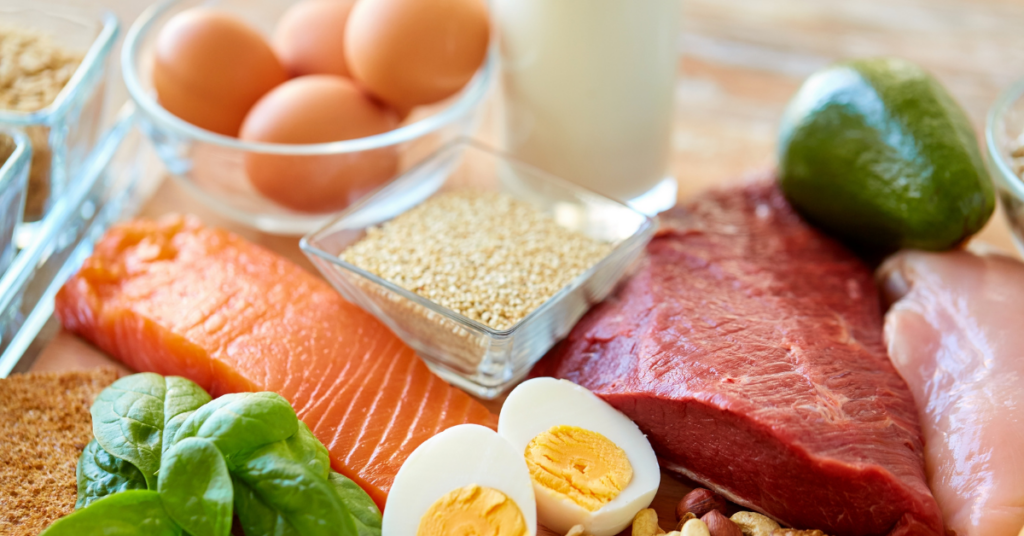Stress.
Where do we begin?
Long commutes.
Stacked calendars.
Parenting.
Looming deadlines.
Inflation.
Financial concerns.
Family obligations.
Global uncertainty.
Health worries.
Phew. If it all feels like a lot, you’re not alone.
In fact, stress seems to have taken a permanently prominent place in our vocabulary. While it’s completely normal to experience some stress, the overwhelmingly high levels at which we are experiencing it, isn’t. Hear us out.
Biologically, our bodies are designed to handle acute (short term) stress – the stress needed to protect you in dangerous situations that triggers the “fight or flight” response of your sympathetic nervous system. This response releases stress hormones (such as cortisol and adrenaline) to help give your body the energy it needs to get out of danger (ie: run away from a bear in the woods). This is good and important in keeping you safe.
The issue is that our modern lives have us living in this fight or flight response much of the time, not just in emergencies. Your body doesn’t know the difference between the bear chasing you and general life-related anxiety. Many of us find ourselves under a mountain of daily stressors that we can’t seem to crawl out from under, leaving our sympathetic nervous system activated. This chronic (long term) stress causes the hormones that are meant to be only released into your body when you are literally trying to run for your life, to now be released regularly from over stimulation and external pressures. As a result, your body remains on high alert, eventually leading to burn out.
Understanding what’s happening to your body when it’s under this consistent stress is key to counteracting the negative effects.
Stress and The Foods You Eat
Stress has a major impact on the types of foods you seek out. When you’re under stress, you’re much more likely to reach for high-calorie, high-fat, and high sugar foods because they provide a quick source of energy that your body needs as it prepares for “fight or flight”.
The more regularly you consume these foods due to chronic stress, the more intense your desire for those foods may become because your body likes the short-term reward. This repeated behavior can eventually lead to increased risk for weight gain/obesity and other health-related concerns.
Additionally, we all know what happens after the energy burst spikes. We crash and reach for that cup of coffee or glass of wine.
Stress Management
While you may not be able to fully eliminate stress from your life, you can give your body the tools it needs for resiliency. Stress management may naturally support you with staying on track with your food choices and make it less likely that you’re driven to reach for those carb and sugar-loaded snacks. Additionally, being able to remain centered when faced with everyday stressors can help reduce the release of those pesky stress hormones that are wreaking havoc on your health.
5 Ways to Cope with Stress:
1. Engage in a low-intensity exercise you enjoy such as walking, yoga or even foam-rolling out the knots in your body. If you typically like to do higher-intensity training, be sure to incorporate adequate recovery into your routine to counteract the elevation of cortisol levels when they may already be high from stress.
2. Find a short daily mindfulness practice that works for you. Perhaps, it’s meditation, breathing techniques or journaling for a few minutes in the morning or evening. Even just a few moments of a solid daily routine can help provide an outlet and calm your nervous system in times of tension.
3. Connect with your Stronger U Coach and the Stronger U Community. Having a network to lean on, whether that be friends, family or a like-minded community such as ours, can make it easier to cope with life’s struggles. It also helps to build self-esteem and provides a sense of belonging.
4. Get quality zzz’s. Sleep is critical to handling stress and to your overall well-being. According to the American Psychological Association, “adults with high stress are more likely to say they are not getting enough sleep because their minds race (49 percent vs. 10 percent of adults with low stress).” If sleep is a challenge for you, make some changes to your wind-down routine. Turn off electronics and bright lights at least an hour before bed and try engaging in some sort of calming activity such as a hot shower/bath.
5. Keep your caffeine and alcohol intake in check. Caffeine and alcohol can have different effects on all of us, so it’s good to pay attention to how you feel after your cup of joe or nightcap. Is it affecting your appetite? Your sleep? Your mood? How do you feel when you don’t have it? This awareness might lead you to make some shifts in your habits, which could be contributing to your stress.
For more actionable tips specifically on how to stop stress eating, check out this blog by Stronger U Director of Nutrition Education, Dr. Jessica Bachman.








